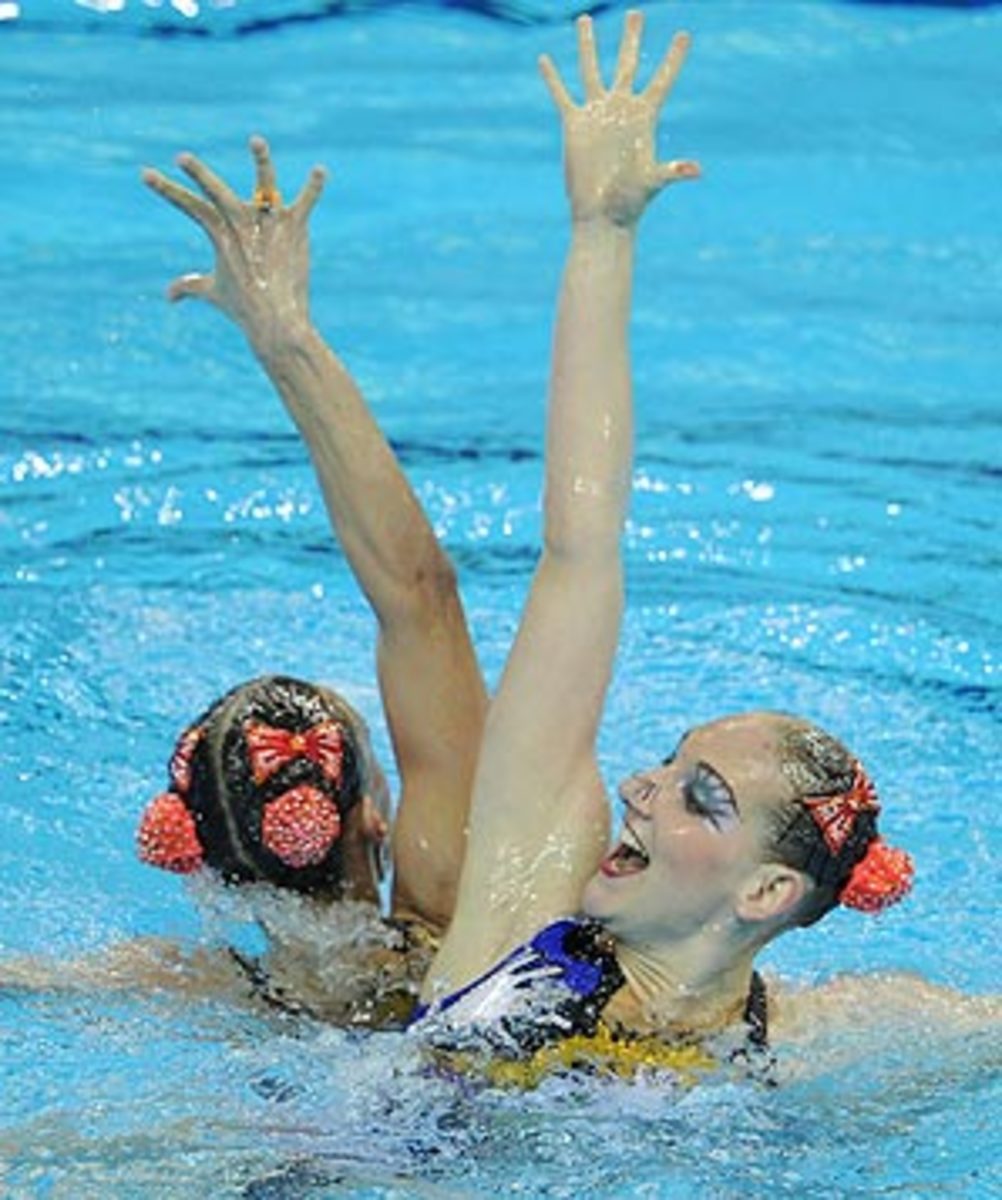Synchronized swimming preview
SI.com's writers will preview each event from the 2012 Summer Olympics in London. Here, Stephanie Apstein looks ahead to synchronized swimming.
Natalia Ishchenko, Russia: Six gold medals at the 2011 world championships in Shanghai (one in each event in which she competed; her teammates took gold without her in the only event she sat out, the technical team event) give her a record 17 career world titles.
SPORTS EXPLAINERS: SYNCHRONIZED SWIMMING
Ishchenko, 26, won gold in the team event in Beijing and is the favorite in both the team and duet events this year. The duet routine she and partner Svetlana Romashina, 22, will perform in London is almost identical to the one that won gold in Shanghai last year.
Andrea Fuentes, Spain: Fuentes, 29, placed second in both the team and duet competitions in Beijing to earn Spain's first synchronized swimming medals. Star teammate Gemma Mengual retired unexpectedly in February, but Fuentes and new partner Ona Carbonell, 22, took bronze in the duet competition at the 2011 world championships. Fuentes also placed second in the solo free routine, third in the solo technical routine (neither of which is contested at the Olympics) and second in the team events.
Huang Xuechen, China: Huang, 22, a member of China's national team since 2002, brought China its first synchronized swimming medal with a bronze in Beijing and has not slowed down since, placing second in the technical solo, duet and team events at the '11 world championships. She and partner Liu Ou will replace twins Jiang Tingting and Jiang Wenwen, who finished second in the duet in Beijing.
The U.S. has a storied history in the sport -- from the 1973 world championships until the 2000 Olympics, the Americans captured a podium spot at every major international competition -- but it failed to qualify a team for the first time ever this year. The duet of Mary Killman, 21, and Mariya Koroleva, 22, featured in a longer SI.com piece here , will hold the hopes of a nation. They have been working together for less than a year, but their coach, Mayuko Fujiki, an Olympic medalist for her native Japan, is highly respected.
Russia vs. China vs. Spain
Canada has made waves (sorry) in recent years, and Japan was once a powerhouse -- it still owns the most Olympic medals in the history of the sport with 12, but the retirement of co-leaders Miya Tachibana and Miho Takeda, owners of five medals each, after Athens made a huge dent -- but the new Big Three of Russia, China and Spain now owns the pool. The Russians are solidly at the top, having won gold in both the duet and team competitions at the last three Olympics, but the Chinese (six silvers and one bronze at the 2011 world championships) and Spanish (one silver and five bronzes) will be ready to swoop in should they stumble.
Canadian Marie-Pierre Boudreau-Gagnon, 29, has said she expects London to be her last Olympics. She placed sixth in the duet and fourth in the team event in Beijing and competed in six of seven events in Shanghai, missing only the team final. With a bronze in the team free routine combination, she was a member of the team that broke the Big Three's sweep at worlds.
Koroleva and Killman were born 364 days apart -- Koroleva on April 10, 1990 and Killman on April 9, 1991. ...To continue the pattern, Ishchenko was born on April 8, 1986 and Fuentes on April 7, 1983. ... Synchronized swimming is one of only two sports, along with rhythmic gymnastics, in which only women compete. ... The London organizing committee accidentally oversold the synchronized events by 10,000 tickets. ... Swimmers are allowed to wear nose clips to help them hold their breath, but goggles are not against the rules.
Aug. 7: Duets
Aug. 10: Team






